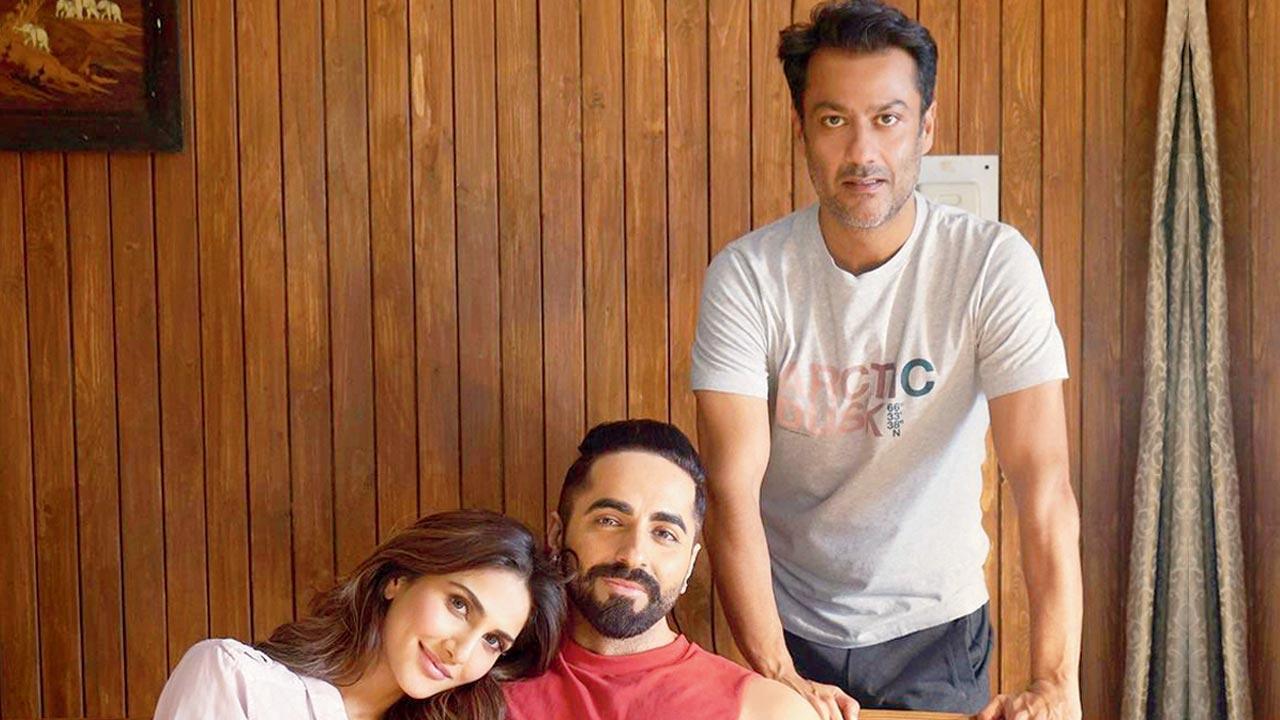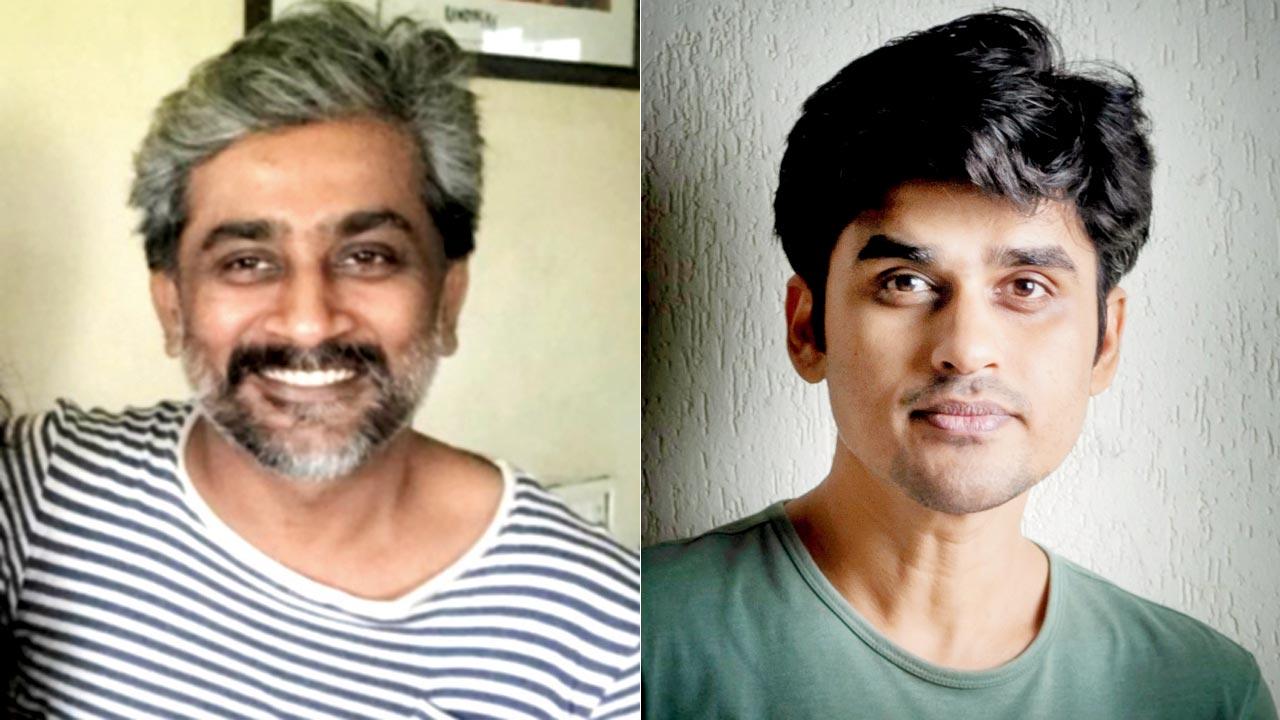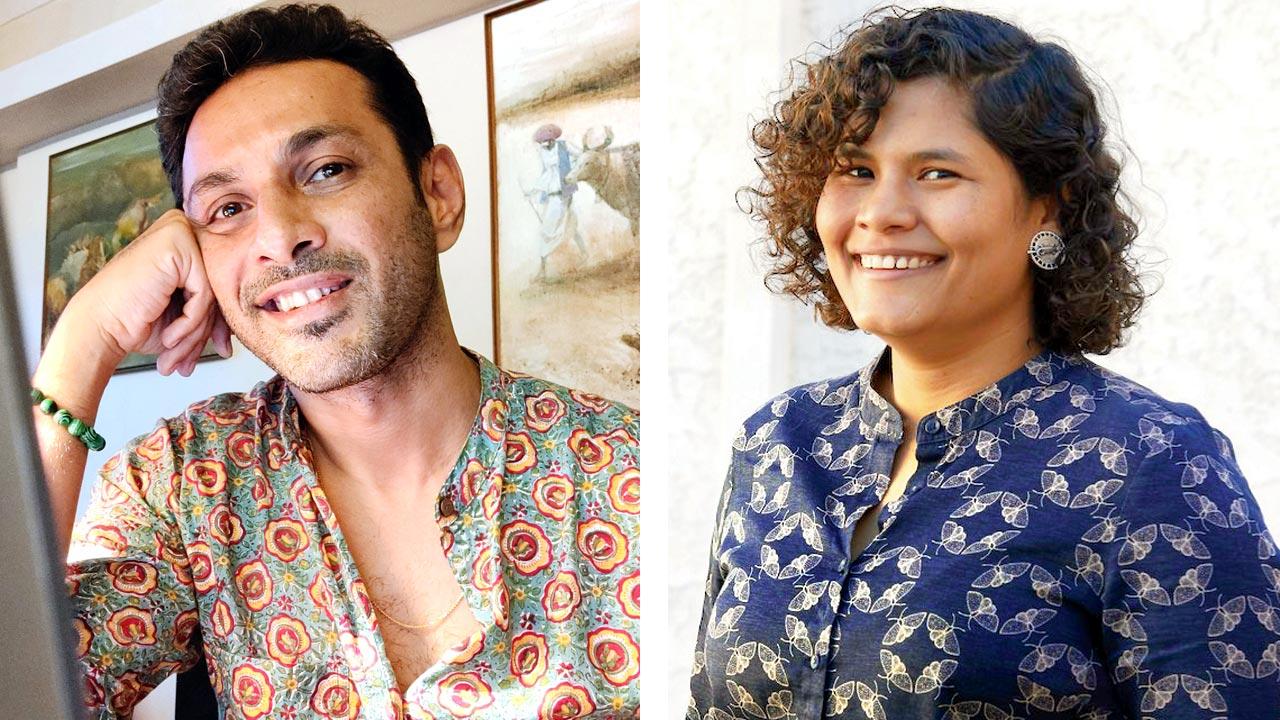Even as films are making room for the LGBTQiA+ experience, filmmakers and writers weigh in on who should have the right of way to tell marginalised stories

Chandigarh Kare Aashiqui tackles the trans issue from a cis male’s perspective
When the Ayushmann Khurrana and Vaani Kapoor-starrer Chandigarh Kare Aashiqui released in December last year, it garnered a lot of interest for its sensitive portrayal of a difficult subject. The film revolves around Manu (Khurrana), a cisgender male bodybuilder in Chandigarh, who falls in love with Maanvi (Kapoor), a Zumba instructor, only to later find out that she is transfeminine, a person who was assigned male at birth, identifies with a female gender identity and chooses to transition to womanhood.
Supratik Sen, who co-wrote the film with Tushar Paranjape, says, “Since we don’t belong to the [LGBTQiA+] community, it was very important for us to really know that world, so that we don’t say anything, which is emotionally unauthentic.”But filmmaker and editor Apurva Asrani, who co-wrote and edited Shahid (2013), identifies as a homosexual, feels that “representation is key” to create an authentic experience.
 Chandigarh Kare Aashiqui’s writers Supratik Sen and Tushar Paranjape say they were conscious of the fact that they didn’t belong to the community, but tried to be as thorough as possible with their research
Chandigarh Kare Aashiqui’s writers Supratik Sen and Tushar Paranjape say they were conscious of the fact that they didn’t belong to the community, but tried to be as thorough as possible with their research
Mrittika ‘Mou’ Sarin, a queer screenwriter, storyteller and producer, shares the sentiment. “When a queer person writes these scripts, it allows room for a more nuanced portrayal of experiences that only queer people go through.” For instance, the feeling of hurt from micro-aggression or when someone doesn’t take your identity into consideration, or the fear of coming out, and shame that one experiences, when not being able to live their identity. “These are situations that straight people haven’t been in and can’t always fully comprehend,” she explains.
Despite their apprehensions, both Sarin and Asrani believe that straight people can write scripts, but “research and collaboration” is a must. “You need to speak with queer or transgendered people about their experiences. It’s also important to never assume that you know everything about the character. Take their feedback at every stage,” Sarin adds.
 Apurva Asrani and Mrittika ‘Mou’ Sarin
Apurva Asrani and Mrittika ‘Mou’ Sarin
Paranjape and Sen tried to be as thorough as possible. They initially got the idea from Simran Sahni, a friend of the film’s director, Abhishek Kapoor. Sahni has two trans daughters who were born male and transitioned to female. “Getting the facts right and not undermining the struggle of Maanvi was an important part of the process,” says Paranjape.
Sen explains that the idea of writing is to inhabit different worlds and characters—what’s important, though, is to get the nuances right. To make sure that the experience didn’t feel detached or superficial, Sen and his co-writer consulted a few people from the community, one of whom was Sahni’s daughter Seher. “We heard their stories, what they had been through and got a glimpse into their lifestyle,” says Sen. Other experts included psychiatrists and doctors. Asrani suggests a writing programme, Likho! by The Humsafar Trust, an NGO for the community.
Asrani says what’s often lacking is “deep empathy for the community”. In Bollywood, the trans experience has never really been done justice to. They are usually portrayed as sex workers, evil people, or made fun of. “The mainstream, for decades, has ridiculed and vilified the LGBTQiA+ community. Our movies ‘othered’ them,” points out Asrani.
Chandigarh Kare Aashiqui was a step forward as it had a trans woman character in the lead. If the makers faced flak, it was for having a cisgender actor play a trans role. Only recently, Vijay Raaz’s portrayal of a trans woman in Gangubai Kathiawadi sparked a debate online. Akshay Kumar too, was seen in a trans role in Laxmmi Bomb (2020). Paranjape and Sen agree that casting a trans person would have lent their character Maanvi more heft, but they also say that trans actors should not be the only ones playing such roles. “But, the film industry has still not reached a point, where they’ll cast trans actors in trans roles, let alone cis roles. [Unfortunately] at this point, the pendulum is swinging all the way in favour of cis people. This doesn’t mean we need to do this forever,’’ adds Sarin.
Such criticism was missing in the 1990s, when renowned actors like Sadashiv Amrapurkar and Paresh Rawal were seen in trans roles. Asrani says, “At that time, there was a lot of ignorance about the community. But, the world has shrunk with the Internet. Now, nobody will be able to get away with the nonsense they pedaled back in the day.” But instead of insisting that a trans person play a trans role, Asrani says he’d rather have a trans person on the writing team.
According to Sen, what is noteworthy is that Bollywood is no longer shying away from telling stories that are more inclusive. Also, having a popular face playing these roles helps bring more visibility to the issue. “It can get your message across to a larger audience; Bollywood has that kind of impact and reach,” he says. “It [the film] shouldn’t be in your face, otherwise you can lose some of your audience. The aim is to gently educate people, while entertaining them.”
 Subscribe today by clicking the link and stay updated with the latest news!" Click here!
Subscribe today by clicking the link and stay updated with the latest news!" Click here!








